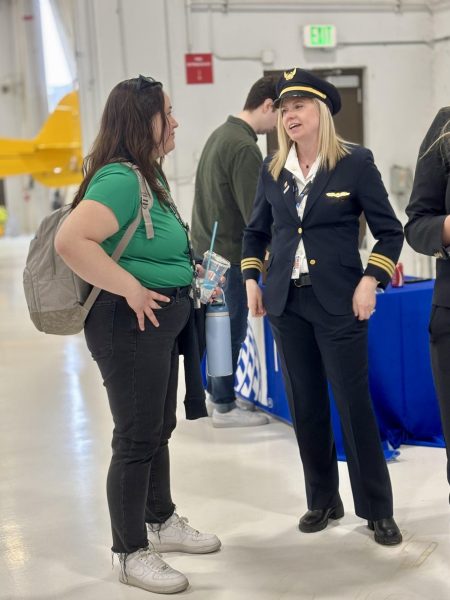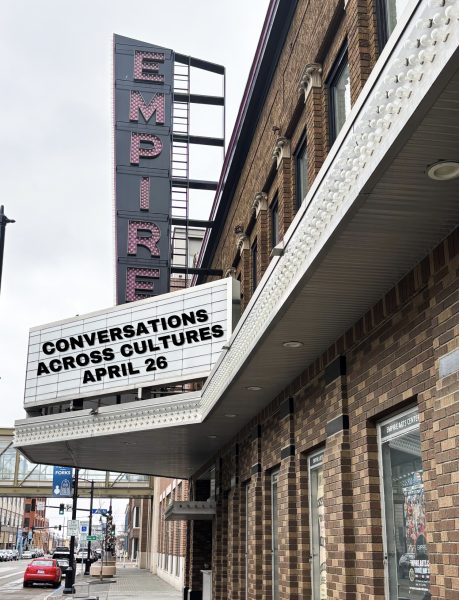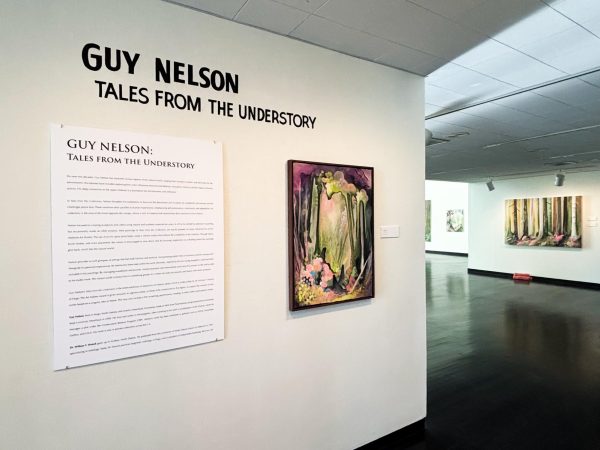Professor discusses ethics and research
The Seven Generations Center of Excellence in Native Behavioral Health at UND hosted Gayle Morse of Sage University on Tuesday for a forum on Research and Ethics in Indian Country.
Morse opened the forum with a Lakota expression translated as: I hope I find you at peace, thank you for having me all my relations.
Morse spoke to a full room of UND students, faculty, staff and other visitors, on challenges that face researchers when working with indigenous communities.
The opening expression tied in with a major theme of her talk; being interconnected with a community. She began the discussion with some of the ethical challenges researchers have faced during their work with Native American communities.
“Researchers have misinterpreted the data, others have used the data for other means then what they said they were going to use it. Some people have not returned the data to the communities.”
Gayle went on to describe some of the challenges that occur when a researcher comes from outside of a given community to study.
“Community voices around the world are demanding ethical research and challenging the way ethics has been conducted,”
She stressed interdependency and transparency between researchers and communities in order for research to be productive and ethical.
The current model of research at universities that requires a high volume of research in order to reach tenure is not always ideal for effective and appropriate research, according to Morse. Codevelopment of research on important topics that are relevant to the specific communities is time intensive, and many tenure-track professors are often expected to generate research at much more rapid pace.
“Communities now expect to be involved in the process of the research, as well as the fruits of the research.” “Many scientific groups psychology, anthro, even medical research have a history of cultural ignorance and bias when conducting research”
She mentioned concerns such as a consent of the studied community as well as the sharing of the results of the research with the communities. Her specific examples of studies that had serious ethical violations were the Barrow Alcohol Study, an Arizona State University Study of the Havasupai Indians and the Human Genome Study.
In Barrow Alaska, the researchers had introduced an new method of measuring alcohol consumptions, and singled out this specific community for the problems facing the community, although other communities had similar levels of alcohol consumptions.
The researchers who studied the Havasupai Indians originally conducted a study regarding a genetic link to diabetes, but the researchers used the blood tests and information they gathered to study a variety of other topics without the tribe’s consent, which led to protest and ultimately a lawsuit from the tribe.
At a larger scale, the Human Genome Study has been condemned by indigenous people around the world as the United Nations Bioethics Committee. The study, which involves taking blood from people in order to study the Human Genome, has raised concerns from indigenous populations regarding how the results from the study will be used and interpreted.
Morse used the ethical issues raised in these studies as examples of why there needs to be clear ethical guidelines in a variety of disciplines. Even within established ethical codes, she stressed that there is still room for improvement, and that researchers need to strive to respect the community that they are trying to study.
“There needs to be a reciprocal relationship where the community has an expertise and the researcher has an expertise, and they join together as partners to develop the project,” Morse said. “Researchers should not assume that the community is to naive to understand the research.”
Morse explained to the forum that there is more than a single way to define ethics in a community, and that researchers should be cognizant of the ethical standards of the community that they are working with.
Morse also cautioned against bias amongst researchers, both explicit and implicit; even researchers
“There needs to be a change in our culture of research that recognizes that we can’t know everything about even our own biases,” Morse said.
Morse went on to explain the importance of cultural relevance and humility when conducting research. These were themes that was reoccuring throughout the discussion; researchers need to make an effort to truly understand, respect and relate to unique communities, and they need to be humble enough to acknowledge that the community is a fundamental part of completing their work.
One of the methods that Morse suggested as ideal for meeting these standards is known as community based participatory research.
“CBPR research is where the researcher and community become partners from the inception, and the design, to the implementation and publication,” Morse said. “It describes a respectful way of conducting research with indigenous people.
Morse is currently an Associate professor of Psychology at the Sage Colleges in New York. Her research primarily focuses on the effect of toxic chemicals on mental health, and she is a member of the Mohawk Tribe.
The forum was part of the the Seven Generations Center of Excellence’s series on topics related to behavioral health and Native Americans. The project brings scholars from around the country to UND to give presentations on their field and meet with students.
Sean Cleary is the Editor-in-Chief of The Dakota Student. He can be reached at sean.d.cleary@und.edu







